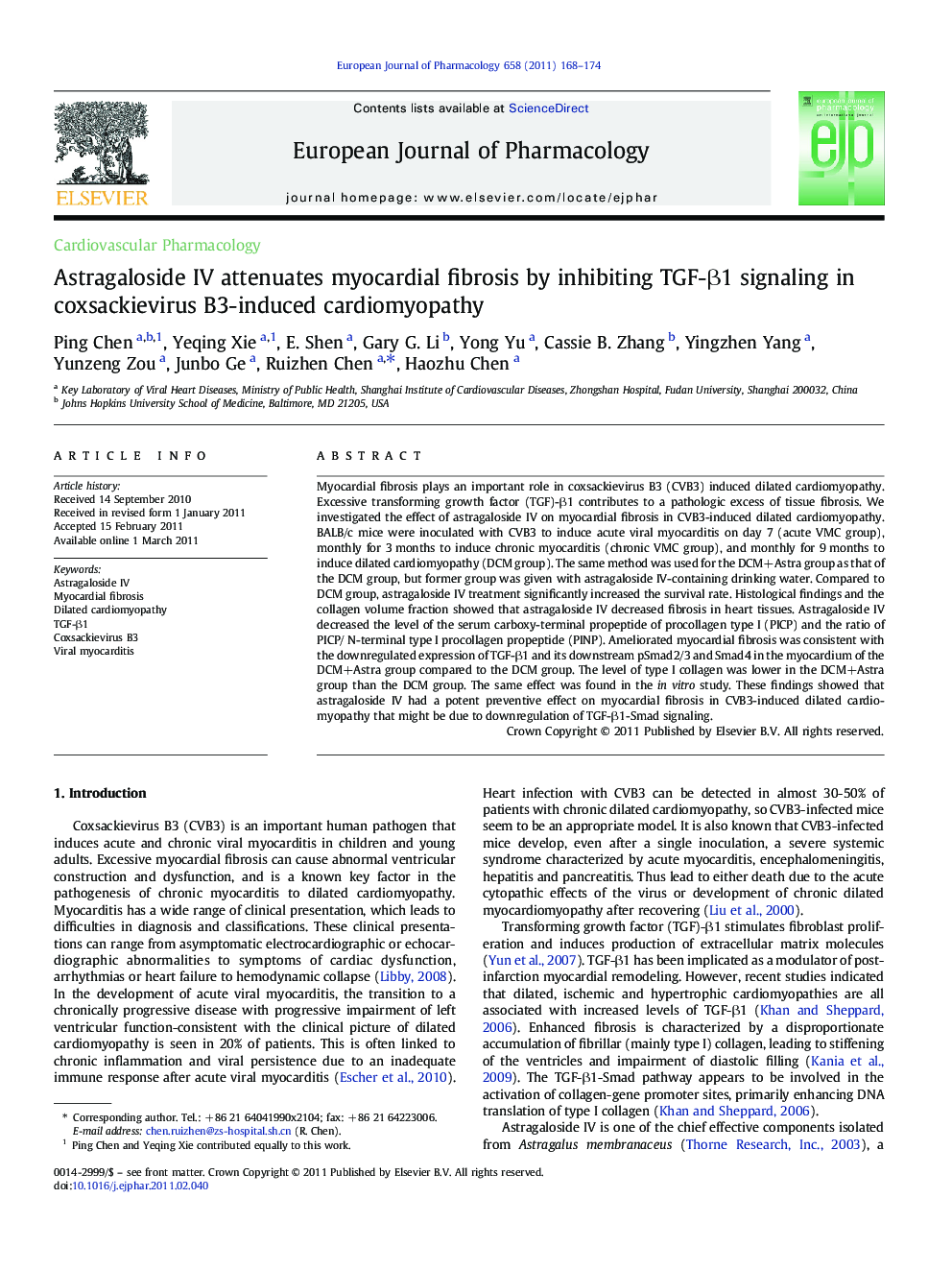| Article ID | Journal | Published Year | Pages | File Type |
|---|---|---|---|---|
| 2532944 | European Journal of Pharmacology | 2011 | 7 Pages |
Myocardial fibrosis plays an important role in coxsackievirus B3 (CVB3) induced dilated cardiomyopathy. Excessive transforming growth factor (TGF)-β1 contributes to a pathologic excess of tissue fibrosis. We investigated the effect of astragaloside IV on myocardial fibrosis in CVB3-induced dilated cardiomyopathy. BALB/c mice were inoculated with CVB3 to induce acute viral myocarditis on day 7 (acute VMC group), monthly for 3 months to induce chronic myocarditis (chronic VMC group), and monthly for 9 months to induce dilated cardiomyopathy (DCM group). The same method was used for the DCM+Astra group as that of the DCM group, but former group was given with astragaloside IV-containing drinking water. Compared to DCM group, astragaloside IV treatment significantly increased the survival rate. Histological findings and the collagen volume fraction showed that astragaloside IV decreased fibrosis in heart tissues. Astragaloside IV decreased the level of the serum carboxy-terminal propeptide of procollagen type I (PICP) and the ratio of PICP/ N-terminal type I procollagen propeptide (PINP). Ameliorated myocardial fibrosis was consistent with the downregulated expression of TGF-β1 and its downstream pSmad2/3 and Smad4 in the myocardium of the DCM+Astra group compared to the DCM group. The level of type I collagen was lower in the DCM+Astra group than the DCM group. The same effect was found in the in vitro study. These findings showed that astragaloside IV had a potent preventive effect on myocardial fibrosis in CVB3-induced dilated cardiomyopathy that might be due to downregulation of TGF-β1-Smad signaling.
